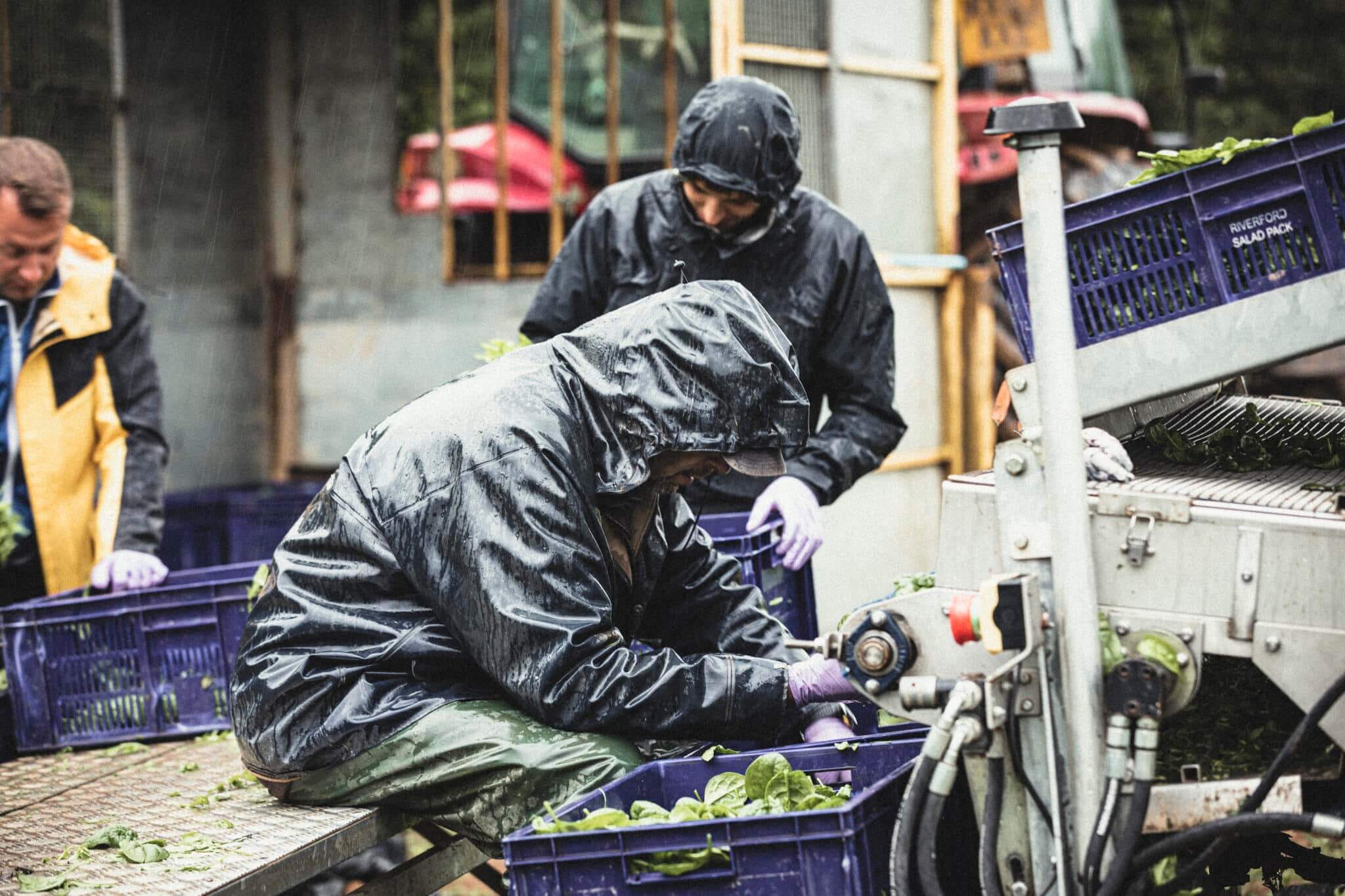This piece is part of the Exploits series, from Wicked Leeks and Live Frankly, aiming to highlight the systemic poor conditions faced by people working in food and fashion. Find out more here.
The government could help stop abuse of seasonal workers and prevent illegal brokers scamming them for fees to come to the UK by providing more information and listing licensed operators.
That’s according to a new report using direct testimonies from seasonal workers on UK farms, and analysis by the New Economics Foundation and the Landworkers’ Alliance, has uncovered how illegal brokers are charging seasonal workers thousands of pounds to come to the UK to work on farms. The workers are then open to exploitative working conditions to pay back the debt, accepting long hours and abusive conditions.
Fruit and veg growing in the UK heavily relies on seasonal workers, who come on a government visa called the Seasonal Worker Scheme. But investigative journalist Emiliano Mellino told a House of Lords evidence session recently that there is no page of licensed operators on the government website, with many workers turning to ads on TikTok on Facebook to find out how to apply, where they often encounter illegal brokers.
“If the system is fair and clear, workers will come to the UK with a fresh mind, a positive attitude, contribute to the economy and solve the problems of food and labour shortages. And they will return as well, reliable for all parties. We have to look after labour,” a Nepali seasonal worker told the report, which was compiled by the Landworkers’ Alliance.
Report co-author and researcher at the Open University Clark McAllister said: “Migrant workers in the agricultural sector face extreme exploitation. With widespread scams and fees plaguing the recruitment process for the Seasonal Worker Visa, many workers arrive in the UK in situations of debt-bondage.”
The Nepali worker said everyone hears about the Seasonal Worker Visa in their country as it comes on the news, where both brokers and candidates hear about it. “But brokers, their first thought is ‘now is our opportunity to make money’. Many people do not know how to use the internet for applications, how to use it properly, how the process works,” they said.
“There must be a better system, an authorised application system that can be properly controlled, with proper information. Otherwise, this will continue to happen. Not just in Nepal, but everywhere.”
A spokesperson for the Home Office, which is responsible for the welfare of migrant workers, told Exploits that the government is “clamping down on poor working conditions and exploitation”.
“We work closely with scheme operators who have responsibility for ensuring the welfare of migrant workers, requiring them to provide at least 32 hours paid employment per week and managing the recruitment process overseas. We will always take decisive action where we believe abusive practices are taking place or the conditions of the route are not met.”
The spokesperson said anyone who has reason to believe abusive practices are taking place should report it through the Home Office or via the Gangmasters Labour Abuse Authority.
The report, however, clearly highlights how the current system is not working, adding to a growing body of evidence of mistreatment and widespread abuse faced by seasonal workers on farms.
Report co-author Catherine McAndrew said: “Our investigation has revealed systemic drivers of exploitation in the migration system and the supermarket supply chain. The seasonal workers’ visa has created an indebted workforce tied to their employers. This has facilitated endemic abuse on British farms.”
“The benefits of this exploitation go mainly to the handful of supermarkets which dominate the food system, while farmworkers earn wages that are below thresholds for absolute poverty.
“Through direct testimonies by farmworkers, we hope to demonstrate that farmworkers are not passive victims of exploitation, but are both standing up against these injustices and a core part of the solution to bad working conditions.”
Look out for the new print issue of Wicked Leeks coming soon, exploring the theme of fairness more widely. Available to pre order now.















0 Comments